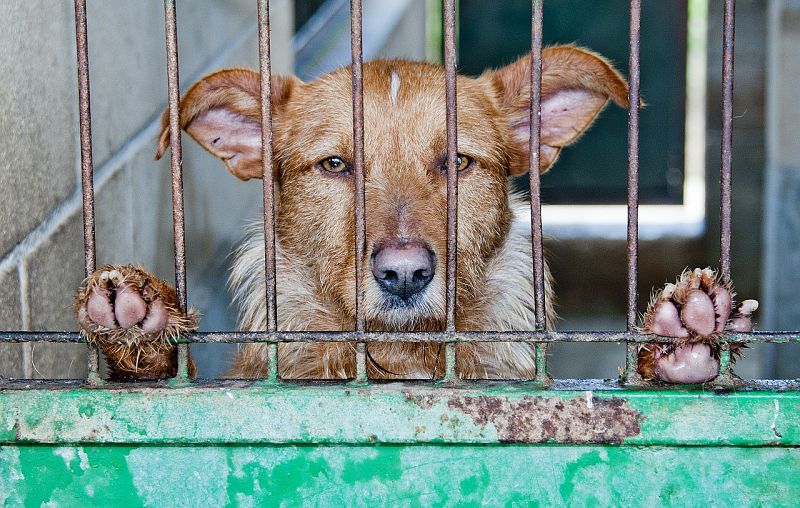Animals shouldn't be looked upon only as food. They are living, breathing beings that deserve more.
WHEN PEOPLE think of animal cruelty, unsustainable industries or the public health burden, they often don’t think of animal agriculture. However, in Australia alone, each year this industry causes hundreds of millions of animals to suffer. It is one of the leading causes of climate change and deforestation, and substantially contributes to poor health outcomes.
The enormous size of these issues leads me to believe that a change in government and law is a key part of the solution.
The Australian Dietary Guidelines and most major international dietary organisations, including The Academy of Nutrition and Dietetics, clearly state that a well-planned vegan diet is nutritionally adequate for adults, children and babies.
In addition to being nutritionally adequate, we can all thrive on a vegan diet. Vegans have higher concentrations of blood protein than non-vegans, lower blood pressure and a lower risk of cardiovascular disease, obesity, type 2 diabetes and some cancers. The World Health Organisation (WHO) has classified processed meat as a Group 1 carcinogen (known to cause cancer, which is the same category that cigarettes are in) and red meat as a Group 2A carcinogen (meaning it probably causes cancer).
Australians also care about animals. In his book Animal Welfare in Australia, Peter Chen draws on a survey of 1,000 Australians by Essential Media and found that 30% of Australians believe that animals deserve the same rights as people to be free from harm and exploitation. A larger number of Australians (61%) believe they deserve some protection.
However, what we do to animals for the sake of taste does not match this belief. Each year, Australians kill some 520-620 million animals (not even including marine animals) to eat them. The vast majority of these are chickens, either raised for meat or for their eggs. Most chickens, even those in "free range" labelled farms, live unimaginably painful lives. The laws in Australia simply do not protect animals that are seen as profitable in the meat industry.
The labels which consumers hold dear, like "free range" or "cage-free", simply don’t mean what people think they do. A series of undercover investigations of Australian farms, consolidated by documentaries Lucent and Dominion, reveal that free-range farms are usually as bad or worse than non-free range farms. For example, the high stocking densities and lack of caging in free-range farms often results in cannibalism and the spread of disease. One study showed that cannibalism increased by as much as 3,000% in cage-free farms.
Even if the animals we farm in Australia lived decent lives, that doesn’t make taking their lives ethical. There is no humane way to kill a living being which doesn’t want to die. If we don’t think it’s ethical to kill a dog or a human for pleasure, we need a very good reason to say why it would be for a farmed animal.
Animal agriculture is one of the largest contributors to greenhouse gas emissions globally and, in Australia, direct livestock emissions account for 11% of national emissions. This doesn’t include the indirect emissions of animal agriculture, such as the growth of crops to feed the animals, and the transport of the animals and feedstock. Despite this, many of our politicians reject climate change and the need for action, and those that do see climate change as an issue fail to acknowledge animal agriculture as a leading cause.
Animal agriculture is also incredibly inefficient as a source of food. Most animals raised for food globally, and even in Australia, are not grazing, but rather are raised in intensive indoor operations known as factory farms.
These cruel systems are entirely legal. Animals in factory farms are usually fed grain grown for them and transported to the farm. For cows, it takes 12 kilograms of grain to produce one kilogram of meat. Typically, this is human-grade grain, which could be fed directly to people, but even in the cases where it is not, the same farmland could be used to grow crops that people can eat.
It also takes almost 9,500 litres of water and almost four litres of fuel to produce one kilogram of meat from cows. Other farmed animals have similar conversion rates.
Grazing isn’t much better when you consider the amount of land required. 26% of the land surface on Earth is used for animal . Land is being cleared in Australia, and across the world, for grazing and feed crops for animals. 82% of agricultural land is being used for grazing, and this is growing by around 9% each year. This land clearance is also putting native wildlife under threat, with 75% of the 1,640 threatened plants and animals having habitat loss as one of their main threats.
Our current system, so heavily reliant on intensive animal agriculture, isn't sustainable.
It's harmful to our health and, most importantly, is a massive source of needless suffering and exploitation towards animals.
That’s why I am standing as a candidate for the Animal Justice Party (AJP) in the next NSW State Election. The AJP wants to transition our system to a less cruel, more sustainable and compassionate one. Together, we can free animals from suffering, end cruel farming practices, implement reforestation plans, promote healthy lifestyles and see a kinder, better Australia for all.
Michael Dello-Iacovo is a PhD candidate in space science at UNSW Sydney, running as a candidate at the forthcoming NSW State Election.
 This work is licensed under a Creative Commons Attribution-NonCommercial-NoDerivs 3.0 Australia License
This work is licensed under a Creative Commons Attribution-NonCommercial-NoDerivs 3.0 Australia License
Support independent journalism Subscribe to IA.












